GTG Links #25 – The One With Every ESG Report (almost)

As promised, the end of the financial year has brought with it a flood of new ESG reporting. Here's the most interesting bits so far, plus a bunch more developments around corporate target setting, climate anxiety research, talks on gamers and sustainability, ESG ratings divergence, and the CO2 locked in trees.
Develop Brighton Sustainability Star goes to UsTwo games
Congrats to UsTwo games for winning the inaugural award.
The Develop:Star Awards 2023 Sustainability Star winner is @ustwogames! Congratulations! ⭐️ #DevelopStars pic.twitter.com/VwrKkaliZf
— Develop:Brighton (@developconf) July 12, 2023
Ubisoft’s green report is out
Still waiting for the full annual report for the full details but a good summary of emissions and what they managed to achieve in 2022 is already available:
In 2022, the total carbon footprint from Ubisoft's operations (including scopes 1, 2, and 3 upstream*) was just over 147 kilotons of CO2e, equivalent to 7.2 tCO2e per employee. This level is similar to what was achieved in 2021.
Another good achievement – 78% renewable power in 22 vs 67% in 21 – which helps to validate some of my revised estimates based on Ubi's upstream Scope 3 from the other week. Here's a breakdown of emissions by category:

Looking forward to the final report and seeing more of the detials.
NetEase annual ESG report
Direct link to the PDF here:
In 2022, our GHG emissions in Scope 1, 2 and 36 were 11,987, 41,131 and 274,060 metric tons of CO2e respectively, as detailed below. The GHG emissions per unit of net revenue has decreased by 5% compared to 2021.
And you can see past reports here.
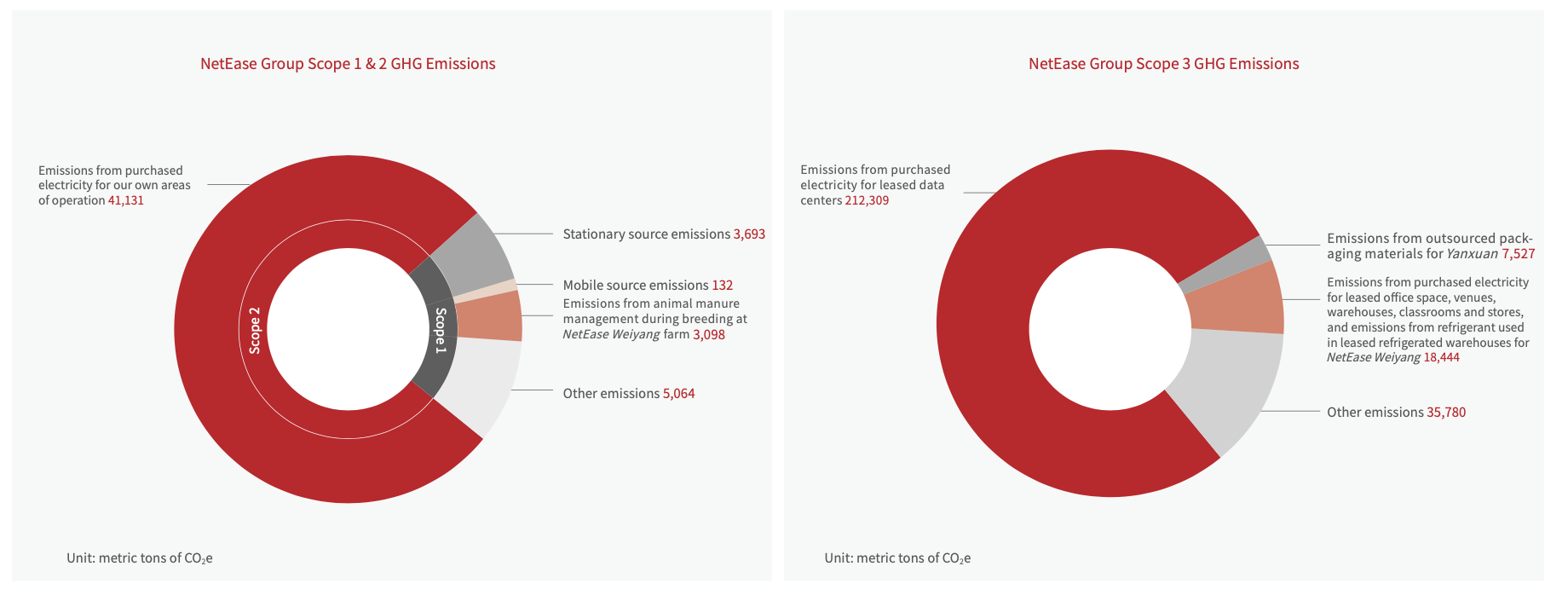
Embracer Group
Embracer Group’s Annual Report 22-2023 is out, with summary here:

But I know you want those tasty details, so the full report is here [PDF]. Here's the key achievements:
The majority of our emissions come from purchased goods and use of sold products. To reduce the emissions where we can have a large direct impact, we have made a commitment to reduce our carbon emissions by 45 % by 2030 compared to FY 21/22 in Scope 1 and 2. For Scope 3, we have committed to a economic intensity reduction target, allowing for growth while addressing climate emissions. Our Science-Based Targets are in the process of being validated. A key part of our sustainability work this year has been our Group-wide effort to improve our data collection processes, including training over 300 data owners across the group.
Hey that sounds like something useful – did you know AfterClimate can train you (or your data owners) as well? It's not hard, but it is a lot to get across.
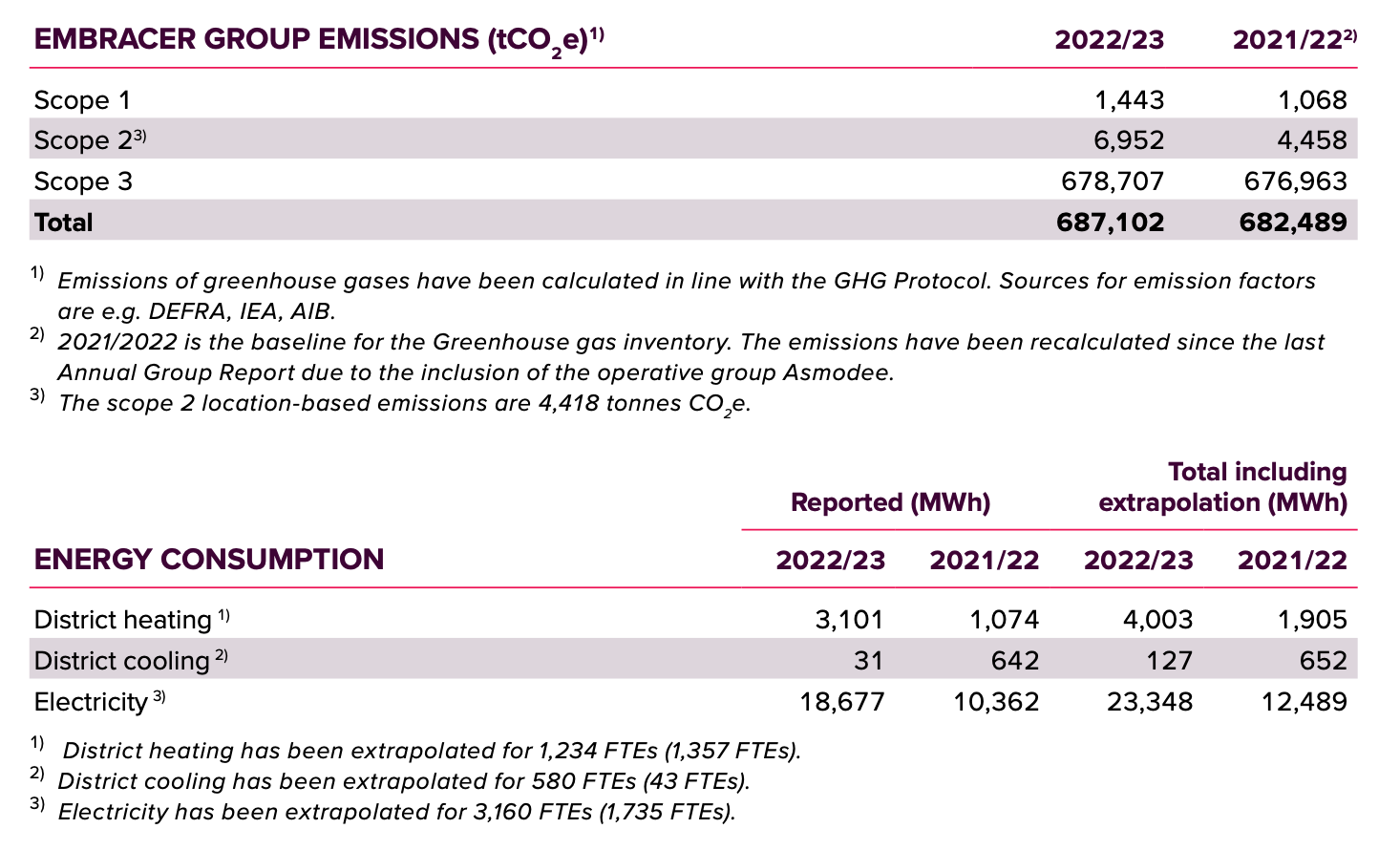
Perfect World annual report
If you read Mandarin you can check out Perfect World’s annual report [PDF]. I did a quick automated translation of what seemed like the most relevant bit. Here's what they've been doing:
1) Optimize data center
In order to speed up the construction of green data centers, Perfect World focuses on improving the energy-saving and consumption-reducing capabilities of data centers, taking multiple measures to reduce energy consumption and improve equipment performance. Contribute to the goal of reaching carbon peak and carbon neutrality.
2) Migrate servers to the cloud to reduce corporate carbon emissions
According to the usage of the self-built data center, the company gradually migrates its own servers to the cloud, which helps reduce the carbon emissions of the enterprise on the basis of reducing energy costs and resource usage. By the end of 2022, the company has migrated a total of 312 servers to the cloud, and shut down more than 200 servers in self-built computer rooms.
3) Improve server management to help realize the green cycle
The company has gradually improved the life cycle management process of servers in use, monitored and managed the whole process from server usage application to server recycling, monitored server usage status in a timely manner, made quick decisions on server usage status, optimized server usage efficiency, and avoided resource waste. In addition, the company has reached recycling cooperation with relevant suppliers to reasonably recycle the old high-energy-consuming servers and related accessories of the enterprise to help realize the green cycle of assets.
4) Build high-efficiency computer rooms to reduce energy consumption of enterprises
In the construction of the data center computer room, the company focuses on reducing the scale and optimizing the utilization rate of the modular computer room. After the server is connected to the cloud and the load in the computer room drops, the kinetic energy equipment in the data center will adjust the corresponding output power in time, shut down the redundant load equipment, and effectively reduce the energy consumption of the enterprise. In 2022, the company's data centers will have an average PUE of 1.4 and a minimum PUE of 1.25.
Riot’s annual impact report
They've got a baseline now – would love to have seen downstream 'use of sold product' as well in this but uh yeah that'll be a lot.
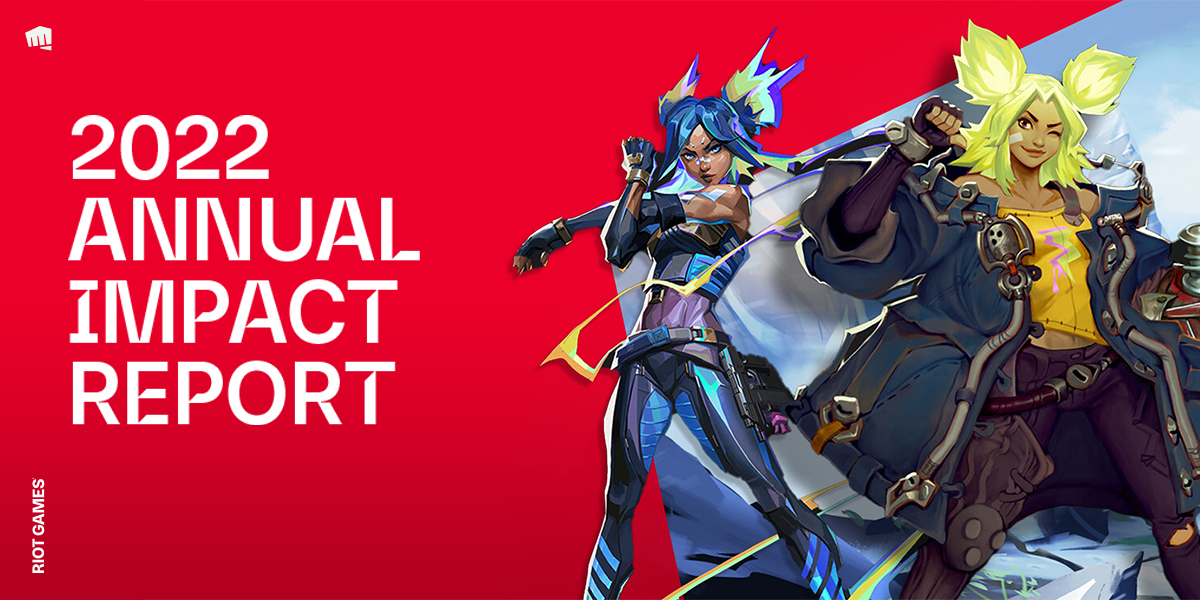
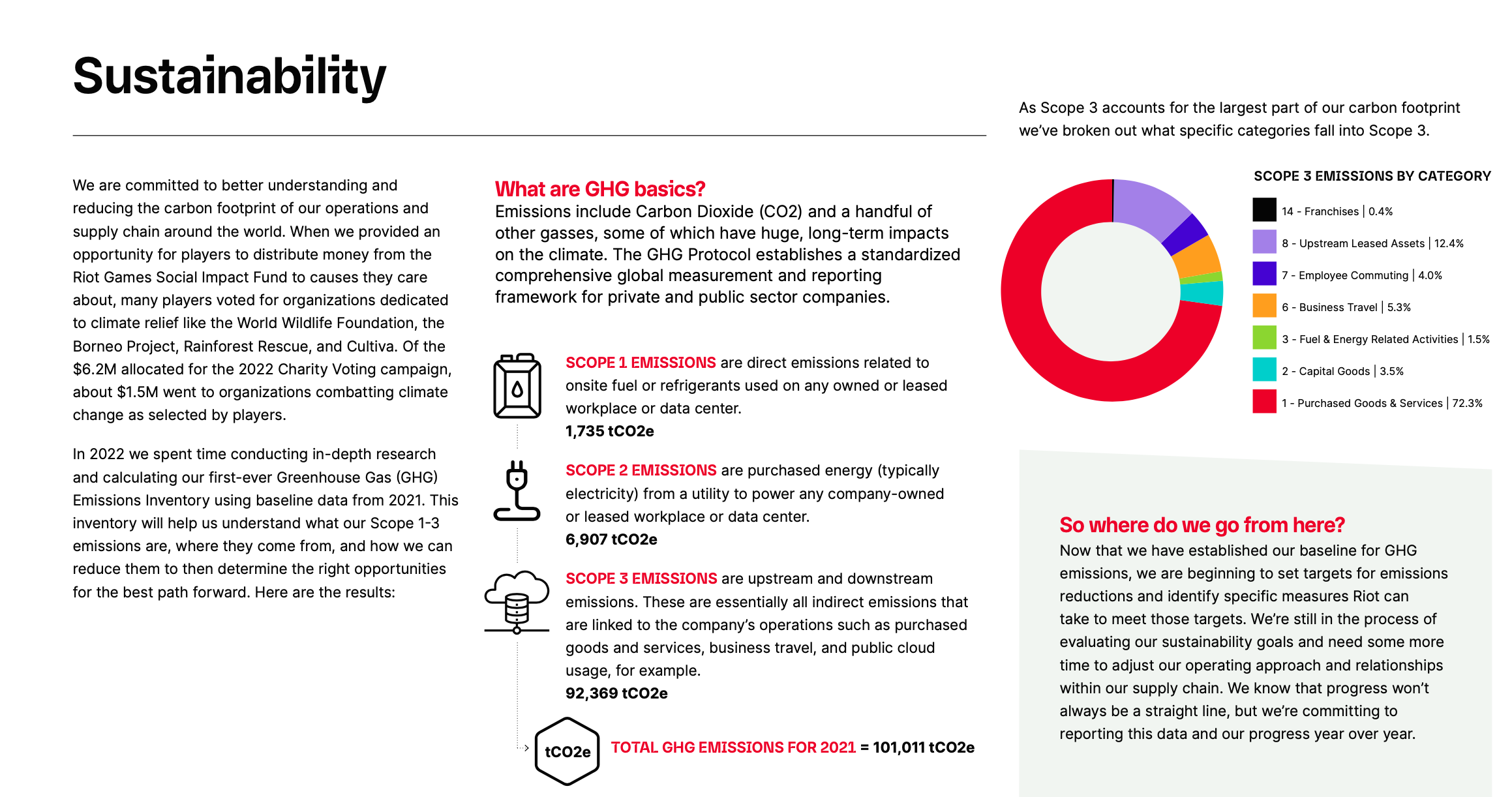
Aristocrat Leisure annual disclosures
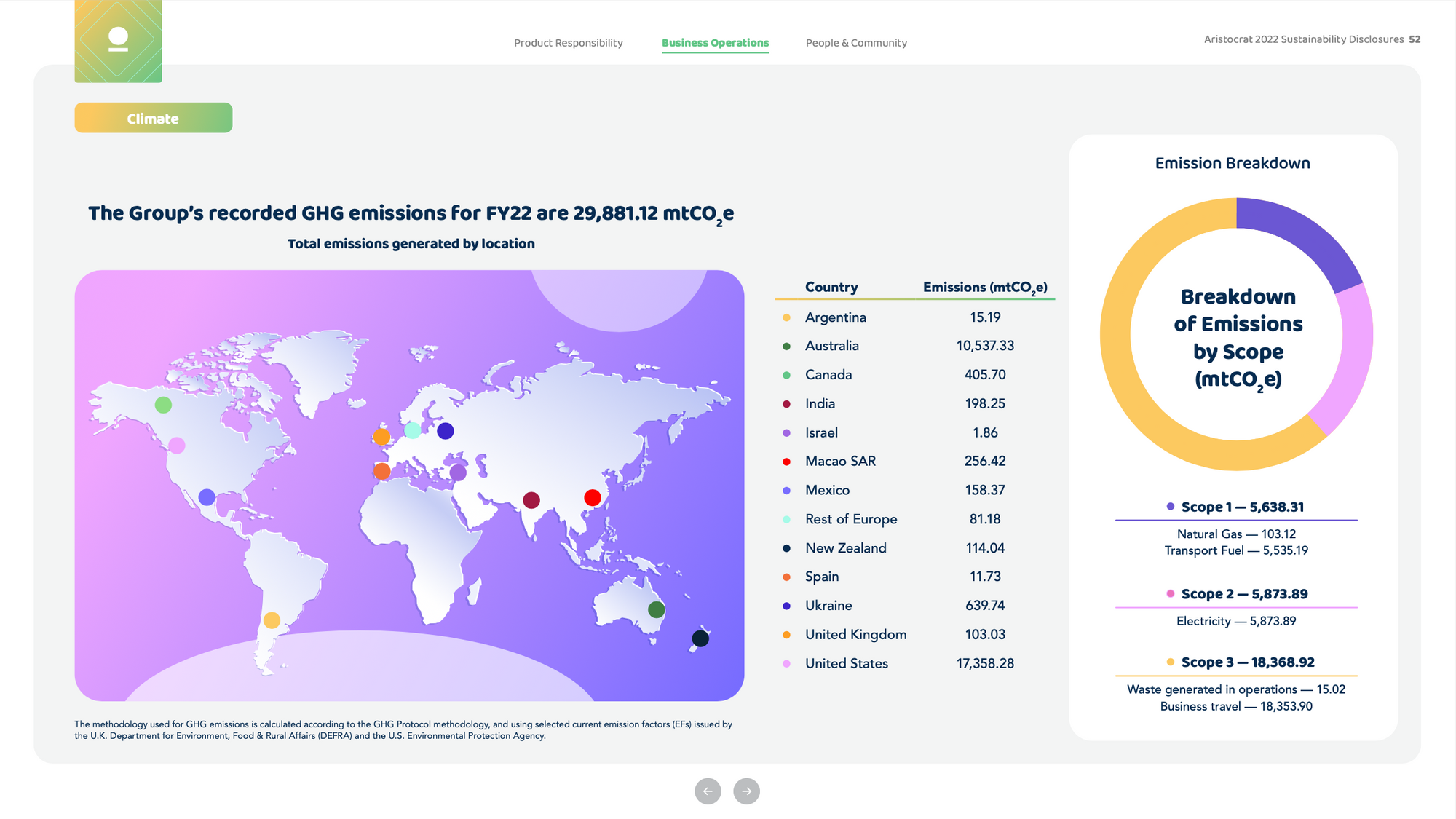

And that's all the ESG reporting I've found so far. After the jump: more green initiative details from NCSoft, data centre zines, climate and ESG research, and the carbon locked in trees.
Still waiting on NCSoft latest report
But last month they did update on its latest Green campaign, with a kind of playful activation of their campus – still hoping we’ll get updated annual emissions numbers though.

Anne Pasek has a new zine caled “Getting into fights with data centres” that is just fantastic
It is so good. Just look at that cover! Such a good guide about how to approach the politics of this stuff in a collective way, instead of relying on individual consumer choice, and so on. PDF is here.
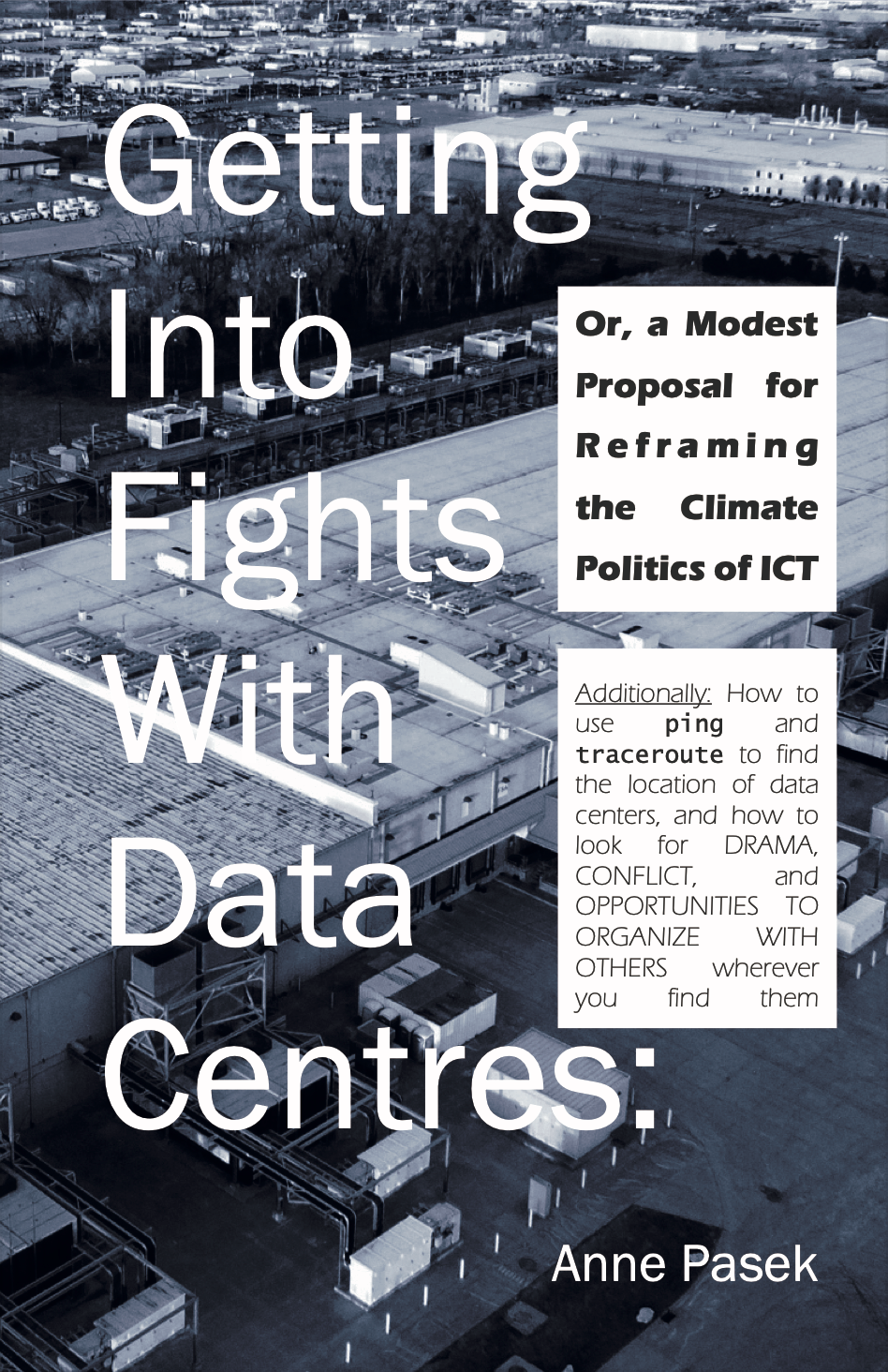
Gaming in Cali
This piece is from a few years ago – it's linked in Pasek's new zine – but it seems to suggest that the power consumption of just video games played in California consumes more electricity than some countries??? Perspective for the energy transition.

And also found via Pasek's zine is this interview with Wheelwright Prize winner Marina Otero on sustinable digital architecture:
“Through field research, data collection, and prototype development, Otero aims to publish the first open-source manual for global data center architecture design, featuring examples of ecological, sustainable, and egalitarian data storage models. By looking at cases in Australia, Chile, China, Iceland, Netherlands, Nigeria, Singapore, Sweden, and the United States, she investigates spatial and material innovations.”

Penn Centre for science, sustainability and the media's Dr Joseph Romm with an essential white paper on carbon offsets
This is the big one I've been reading [PDF] since last time – I did a little post or two about on my Mastodon (I'm on there more than twitter now) and highlighted this section in particular which illustrates the twisted logic of carbon credits, and why they are so easy to double count:
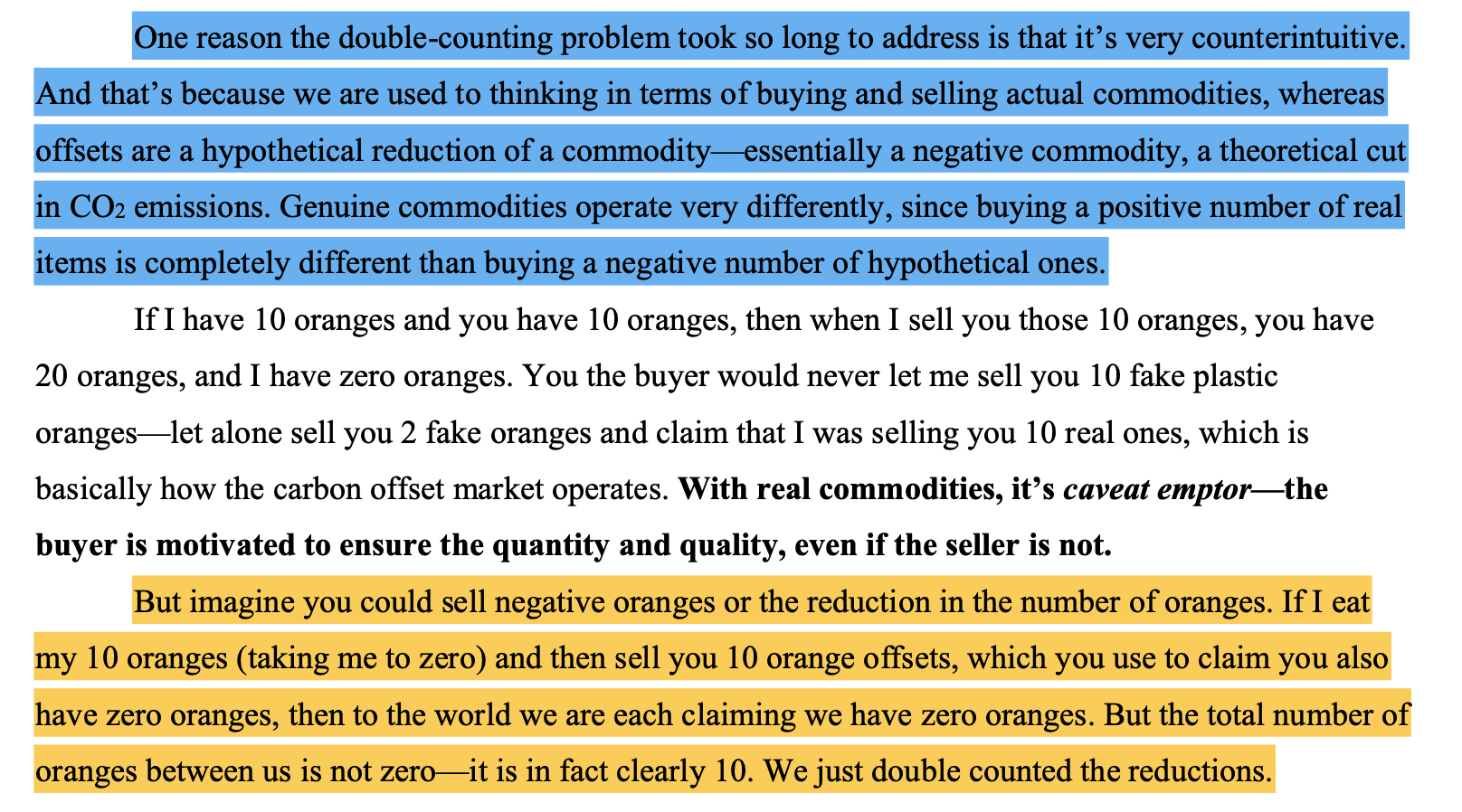
As I said on Mastodon, if you're thinking about buying carbon credits, please get in touch. There are almost definitely better things to spend your money on that will deliver real reductions.
Nestle walks back from "carbon neutrality" – invests in actual decarbonisation

Framework laptop now lets you swap GPUs

Individual climate anxiety - fake it till you make it
And if you can't access it, here's the whole piece embedded as a neat 1-pager.
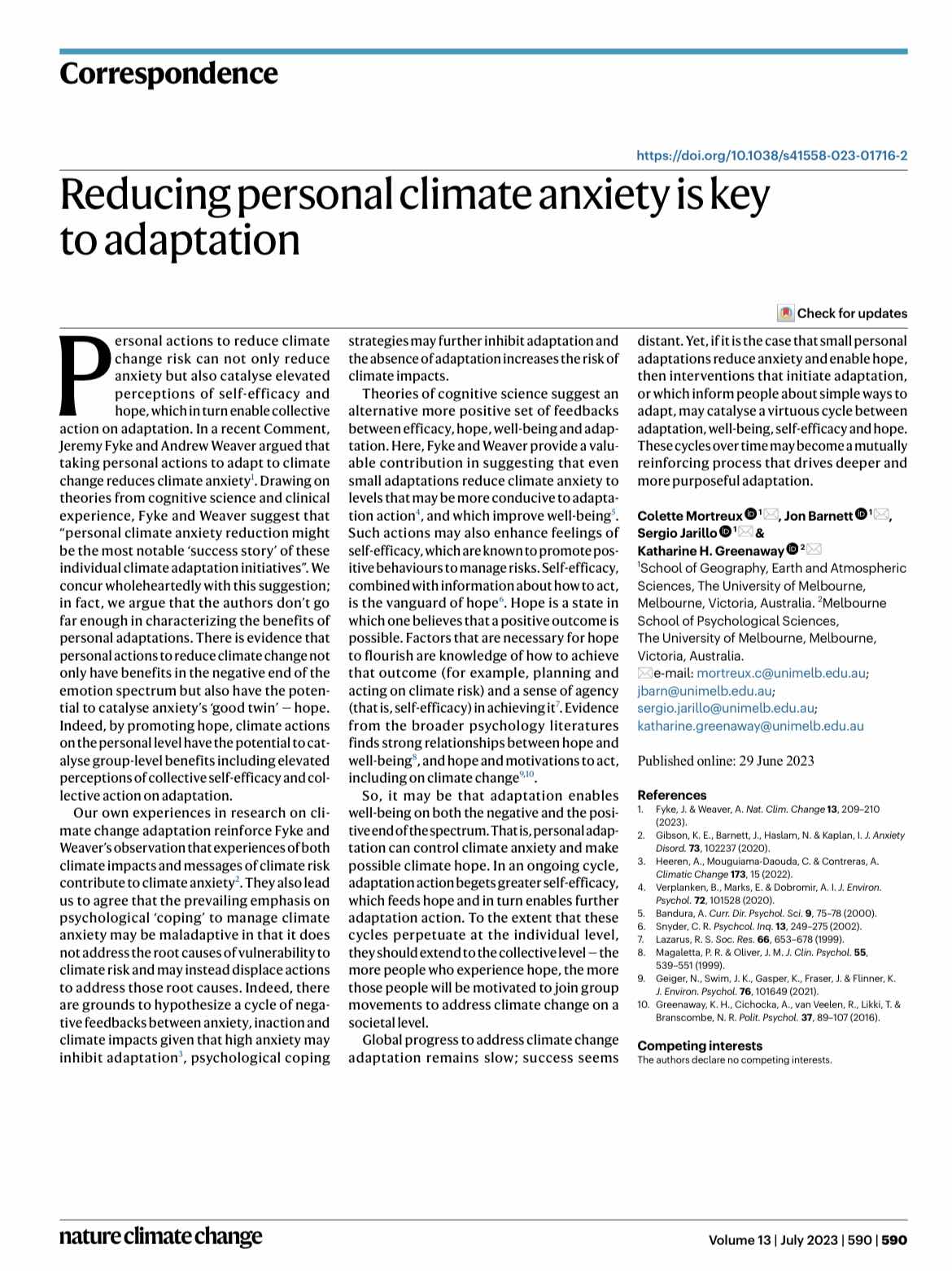
Gamers ahead of game business leaders on sustainability
Also at Develop Brighton this past week was this great talk by MJ Widomska, written up by GI.biz, on sustainability and gamer attitudes:
"When I tell people that gamers are more likely to be vegetarian, that overwhelmingly gamers think that they're being impacted by climate change… people kind of tend to have this view of a gamer being a specific person, they don't think that this is true. But actually, people who play video games are a fairly progressive audience that care about that sort of stuff. In the games industry, it's really easy to kind of alienate your consumer-base by essentially not meeting them where they're at, and not understanding where what they want."
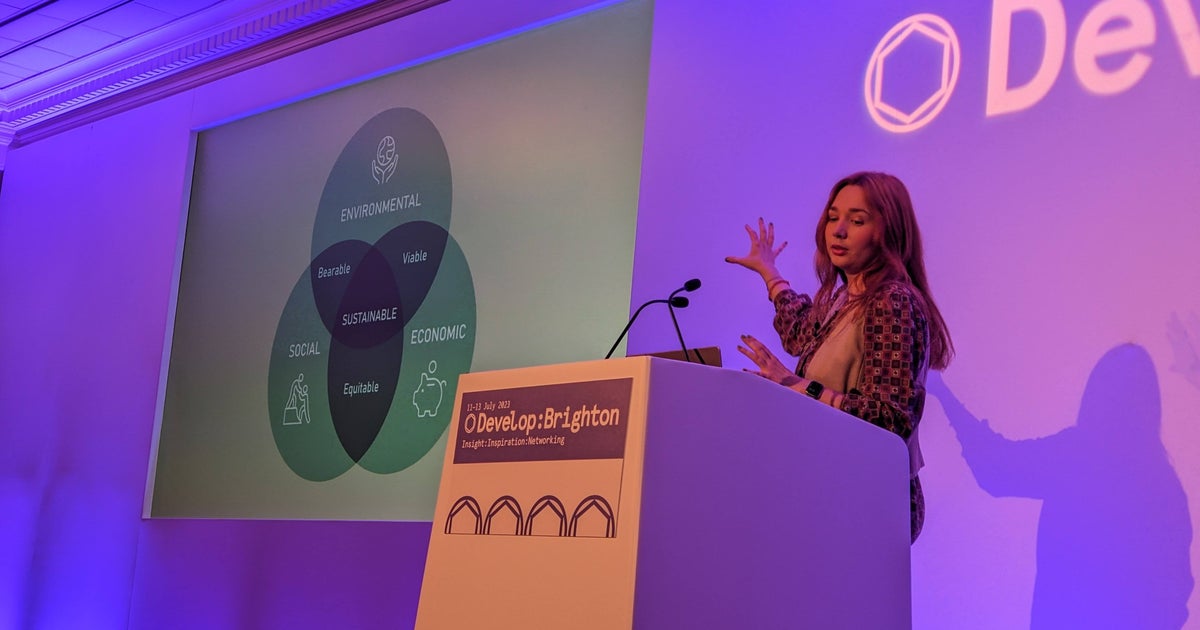
The Polycrisis newsletter has this great quote
Philippa Sigl-Glöckner, an economist formerly in Germany’s finance ministry, remarks, “We have it upside down at the moment: Debt to GDP is constrained, and CO2 emissions are not. Fiscal policy, the whole financial and monetary system, should always follow our societal goals—that’s what it’s there for. And for some reason, we’ve managed to flip this around.”
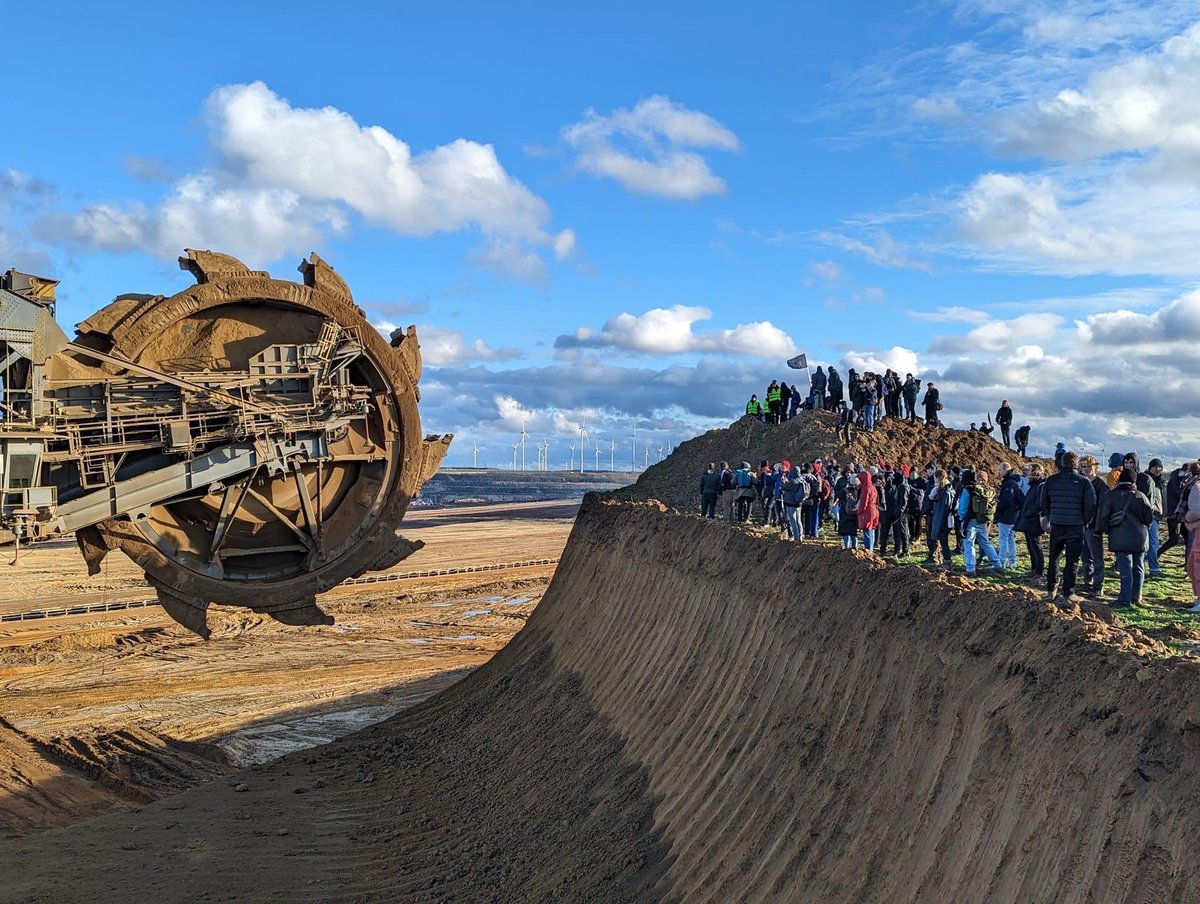
New research on ESG ratings divergence
Hat tip to Lucas Joppa on LinkedIn for the link to this one, all about the problem with the competing approaches of different ESG ratings firms:
This disagreement has several important consequences. First, it makes it difficult to evaluate the ESG performance of companies, funds, and portfolios, which is the primary purpose of ESG ratings. Second, ESG rating divergence decreases companies’ incentives to improve their ESG performance. Companies receive mixed signals from rating agencies about which actions are expected and will be valued by the market. This might lead to underinvestment in ESG improvement activities ex ante. Third, markets are less likely to price firms’ ESG performance ex post. ESG performance may be fundamentally value-relevant or affect asset prices through investor tastes.
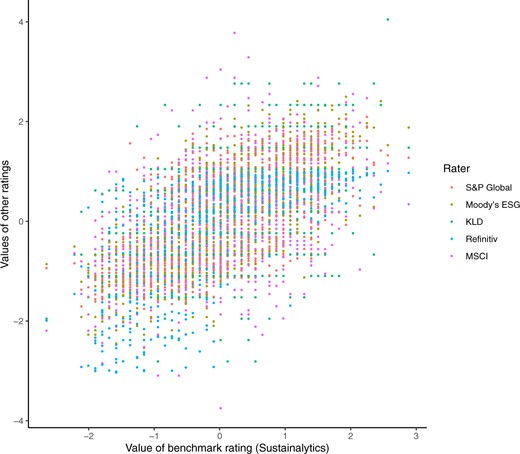
Air Freight characteristics & emissions
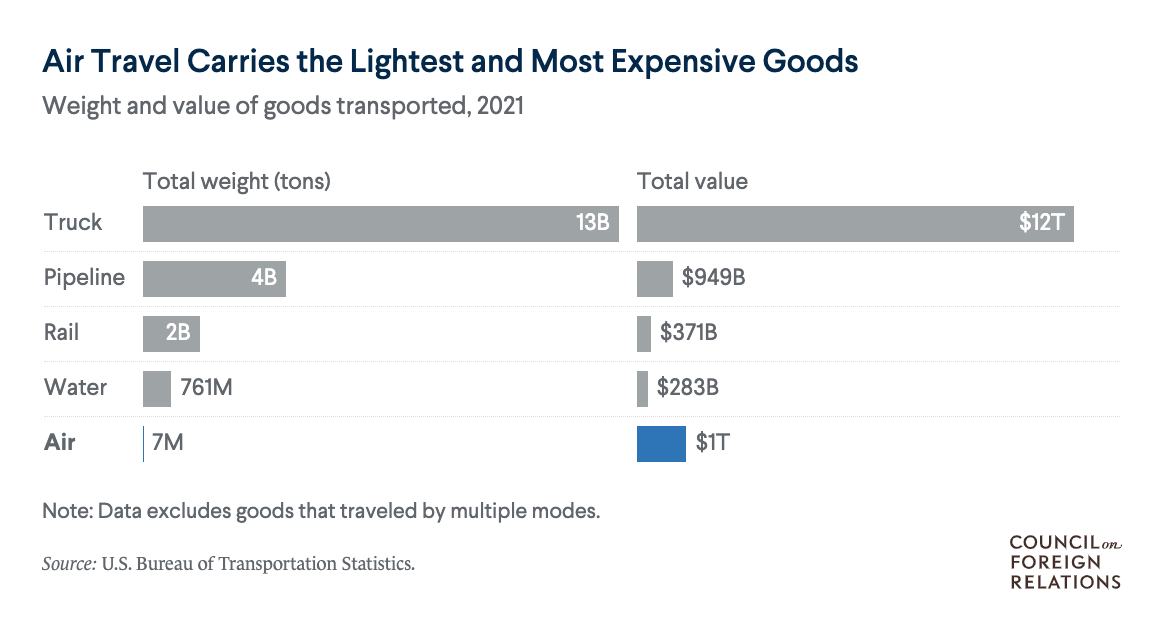
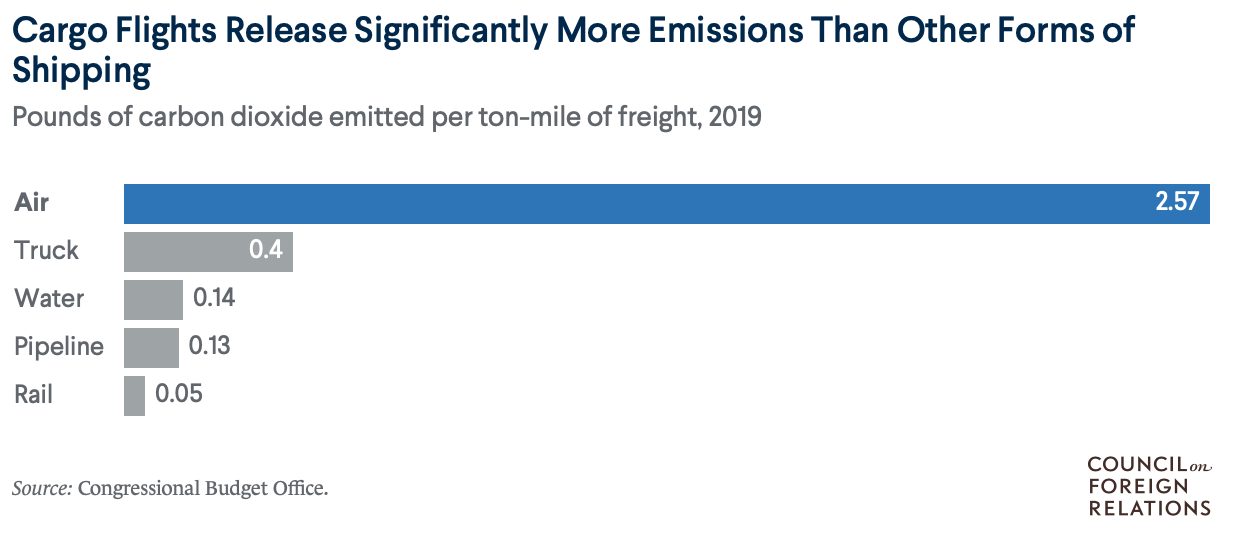
Both of the above charts from here:

German Energy Efficiency law being resisted by data centres
“The Energy Efficiency Act aims to achieve a 26.5 percent cut in Germany's energy consumption by 2030, compared with 2008 levels. This is in response to the European Energy Efficiency Directive which calls for a cut of a third to the bloc's energy use by 2030, compared with 2007 levels. The European Union wants this to be achieved by efficiency measures and requires individual countries to respond. Germany's Energy Efficiency Act is the first major response.”
Read the full piece here, with more details on data centre industry response and their pushback on the proposal.
Alex at PlayAnthropocene interviews Sam Barrett
Fellow games+climate newsletter-er talks to Playing 4 the Planet leader Sam B about why the UN got involved with games.

New interactive visual of over 80 climate data sources
This is an awesome list. Bookmark this one for sure.

ESG funding goes to oil company Saudi Aramco
“Aramco doesn’t appear to have set out to tap cash originally intended for environmental, social and good governance goals when it started a process to raise $28 billion in 2021. But the fact that ESG investors ended up playing a role in the capital raise of a fossil-fuel behemoth raises questions about a playbook that’s increasingly being used in the Gulf.”

Thanks to some complex corporate structures, illustrated below. Glad to know its not just me getting tripped up by this stuff, but it suggests to me that change is needed.

Chart via Adam Tooze's Chartbook Top Links.
Research on the carbon cost of wood harvests
Tough conclusions in this one – wood is one of our best, most sustainable resources, but also old trees are our best carbon sinks. Chopping them down has a cost in terms of lost future abatement. Now we know how much.
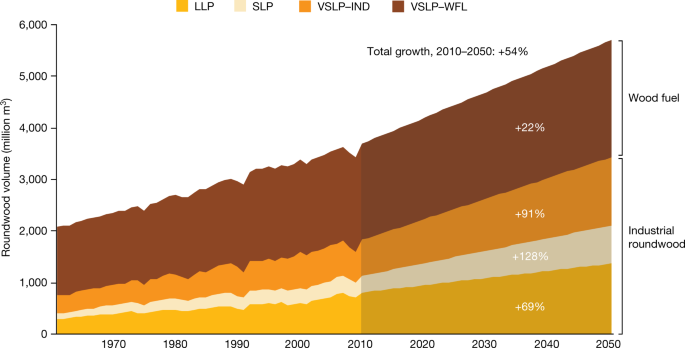
Want to understand how to calculate carbon in trees? Matt Russel has the scoop

It’s relatively straightforward but involves very specific data:
“As an example, consider the species in Maine with the largest volume growing in the state. Obtained from a supplemental table in the Forests of Maine report from 2020, balsam fir has a growing stock in the state of 83.18 million cubic meters, measured as the net merchantable bole volume of growing-stock trees at least 5 inches in diameter.”
Then he runs that through some calculations and gets a final number. There's also a cool table I've reproduced below to illustrate the wide variance between types of tree.
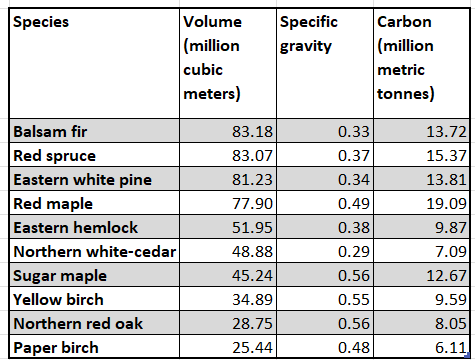
Phew! Another bumper crop of games, emissions, trees.
















